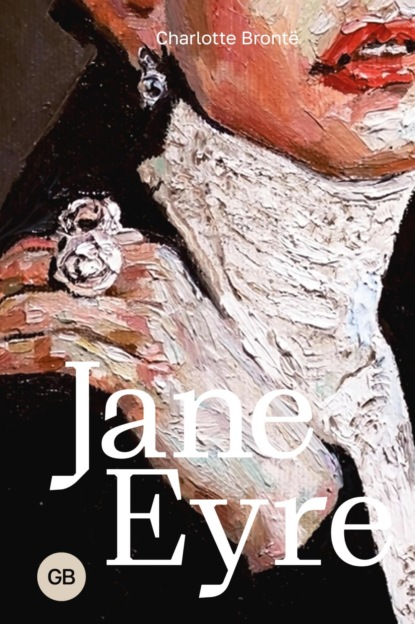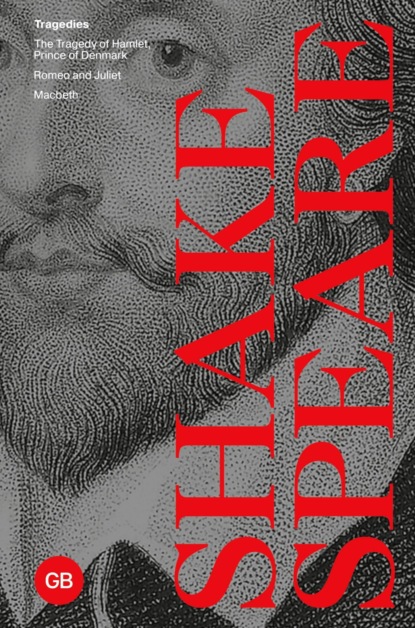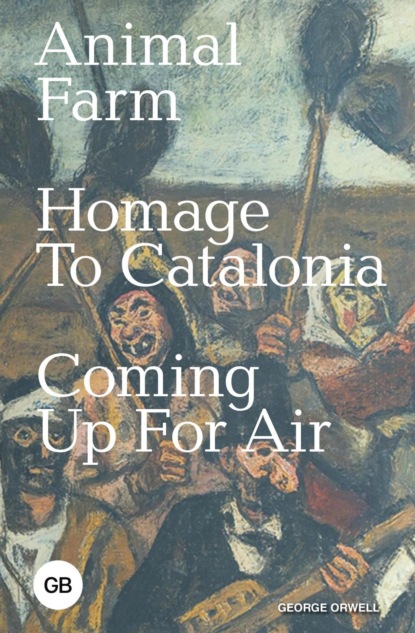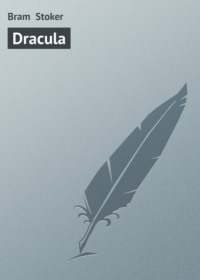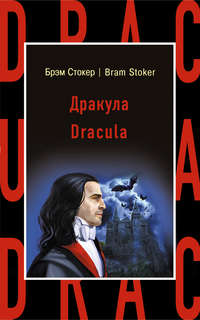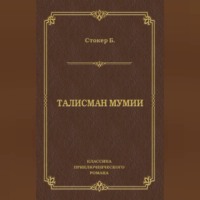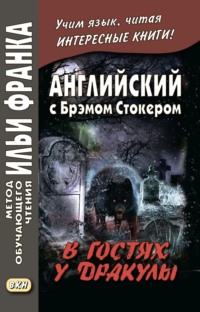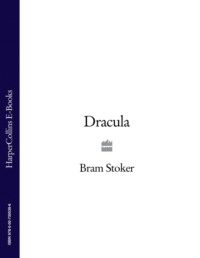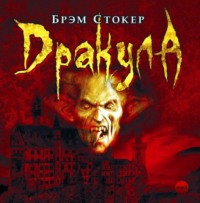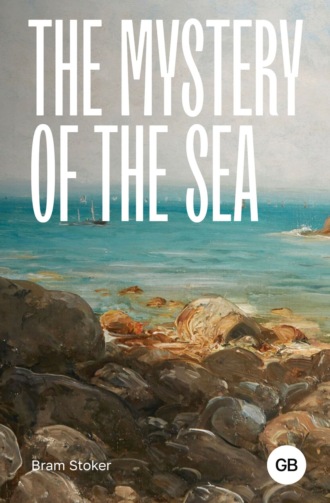
Полная версия
The Mystery of the Sea / Тайна моря
“I know that you are beautiful; the most beautiful and graceful girl I ever saw. I know that you are brave and sweet and tender and thoughtful. I know that you are clever and resourceful and tactful. I know that you are a good comrade; that you are an artist with a poet's soul. I know that you are the one woman in all the wide world for me; that having seen you there can never be any one else to take your place in my heart. I know that I would rather die with you in my arms, than live a king with any other queen!”
“But you have only seen me twice. How can you know so many nice things about me. I wish they were all true! I am only a girl; and I must say it is sweet to hear them, whether they be true or not. Anyhow, supposing them all true, how could you have known them?”
Hope was stepping beside me now. I went on:
“I did not need a second meeting to know so much. To-day was but a repetition of my joy; an endorsement of my judgment; a fresh rivetting of my fetters!” She smiled in spite of herself as she replied:
“You leave me dumb. How can I answer or argue with such a conviction.” Then she laid her hand tenderly on my arm as she went on:
“Oh, I know what you mean, my friend. I take it all in simple truth; and believe me it makes me proud to hear it, though it also makes me feel somewhat unworthy of so much faith. But there is one other thing which you must consider. In justice to me you must.” She paused and I felt my heart grow cold. “What is it?” I asked. I tried to speak naturally but I felt that my voice was hoarse. Her answer came slowly, but it seemed to turn me to ice:
“But I don't know you!”
There was a pity in her eyes which gave me some comfort, though not much; a man whose soul is crying out for love does not want pity. Love is a glorious self-surrender; all spontaneity; all gladness, all satisfaction, in which doubt and forethought have no part. Pity is a conscious act of the mind; wherein is a knowledge of one's own security of foothold. The two can no more mingle than water and oil.
The shock had come, and I braced myself to it. I felt that now if ever I should do my devoir as a gentleman. It was my duty as well as my privilege to shield this woman from unnecessary pain and humiliation. Well I knew, that it had been pain to her to say such a thing to me; and the pain had come from my own selfish impulse. She had warned me earlier in the day, and I had broken through her warning. Now she was put in a false position through my act; it was necessary I should make her feelings as little painful as I could. I had even then a sort of dim idea that my best plan would have been to have taken her in my arms and kissed her. Had we both been older I might have done so; but my love was not built in this fashion. Passion was so mingled with respect that the other course, recognition of, and obedience to, her wishes seemed all that was open to me. Besides it flashed across me that she might take it that I was presuming on her own impulsive act on the rock. I said with what good heart I could:
“That is an argument unanswerable, at present. I can only hope that time will stand my friend. Only” I added and my voice choked as I said it “Do, do believe that I am in deadly earnest; that all my life is at stake; and that I only wait, and I will wait loyally with what patience I can, in obedience to your will. My feelings and my wish, and-and my request will stand unaltered till I die!” She said not a word, but the tears rose up in her beautiful eyes and ran down her blushing cheeks as she held out her hand to me. She did not object when I raised it to my lips and kissed it with all my soul in the kiss!
We turned instinctively and walked homewards. I felt dejected, but not broken. At first the sand seemed to be heavy to my feet; but when after a little I noticed that my companion walked with a buoyancy unusual even to her, I too became gay again. We came back to the hotel much in the spirit in which we had set out.
We found Mrs. Jack dressed, all but her outer cloak, and ready for the road. She went away with Marjory to finish her toilet, but came back before her younger companion. When we were alone she said to me after a few moments of 'hum'ing and 'ha'ing and awkward preparation of speech:
“Oh Mr. Hunter, Marjory tells me that she intends to ride on her bicycle down to Aberdeen from Braemar where we are going on Friday. I am to drive from Braemar to Ballater and then go on by train so that I shall be in before her, though I am to leave later. But I am fearful about the girl riding such a journey by herself. We have no gentleman friend here, and it would be so good of you to take charge of her, if you happened to be anywhere about there. I know I can trust you to take care of her, you have been so good to her, and to me, already.”
My heart leaped. Here was an unexpected chance come my way. Time was showing himself to be my friend already.
“Be quite assured,” I said as calmly as I could “I shall be truly glad to be of the least service. And indeed it will just suit my plans, as I hoped to go to Braemar on my bicycle one day very soon and can arrange to go just as may suit you. But of course you understand that I must not go unless Miss Anita wishes it. I could not presume to thrust myself upon her.”
“Oh that is all right!” she answered quickly, so quickly that I took it that she had already considered the matter and was satisfied about it. “Marjory will not object.” Just then the young lady entered the room and Mrs. Jack turning to her said:
“I have asked Mr. Hunter my dear to ride down with you from Braemar; and he says that as it just suits his plans as he was going there he will be very happy if you ask him.” She smiled as she said:
“Oh since you asked him and he had said yes I need not ask him too; but I shall be very glad!” I bowed. When Mrs. Jack went out, Marjory turning to me said:
“When did you plan to go to Braemar?”
“When Mrs. Jack told me you were going” I answered boldly.
“Oh! I didn't mean that,” she said with a slight blush “but at what time you were to be there.” To which I said:
“That will be just to suit your convenience. Will you write and let me know?” She saw through my ruse of getting a letter, and smilingly held up a warning finger.
As we strolled up the road, waiting for the dog-cart to be got ready, she said to me:
“Now you can be a good comrade I know; and you said that, amongst other things, I was a good comrade. So I am; and between Braemar and Aberdeen we must both be good comrades. That and nothing more! Whatever may come after, for good or ill, that time must be kept apart.”
“Agreed!” I said and felt a secret exultation as we joined Mrs. Jack. Before they started Marjory said:
“Mrs. Jack I also have asked Mr. Hunter to come on the ride from Braemar. I thought it would please him if we both asked him, since he is so diffident and unimpulsive!”
With a smile she said good-bye and waved it with her whip as they started.
Chapter XII. The Cipher
I went straight to my own room and commenced to work afresh on the biliteral cipher. More than ever had I the conviction upon me that the reading of the secret writing would be the first step to the attainment of my wishes regarding Marjory. It would have been strange therefore if I had not first attempted the method which she had herself suggested, the reducing the Baconian cipher to its lowest elements.
For many hours I laboured at this work, and finally when I had reduced the Baconian five symbols to three I felt that I had accomplished all that was possible in that way[2].
When I had arrived at this result, and had tested its accuracy in working, I felt in a position to experiment with my new knowledge on the old number cipher. First I wrote out my method of reduction as a sort of addendum to the paper which I had prepared for Marjory. Then I made a key to cipher and one to de-cipher[3]. By this time the night was well on and the grey of early morning was beginning to steal in by the edges of the blinds; I was not sleepy, however; I was too much excited to think of sleep, for the solving of the problem seemed almost within my grasp. Excited to a state which almost frightened me by its intensity, I got ready my copy of the number cipher and my newly prepared key. With an effort which took me all my resolution I went on steadily writing its proper letter under each combination without once looking back; for I knew that even should some of the letters be misplaced in the key the chance of recognising the right ones would be largely increased by seeing a considerable number of letters together.
Then I glanced over the whole and found that many of the symbols made up letters. With such a basis to work on, the rest was only labour. A few tentative efforts and I had corrected the key to agreement with some of the combinations in the cipher.
I found, however, that only here and there were letters revealed; try how I would, I could not piece out the intervening symbols. At last it occurred to me that there might be in the paper two or more ciphers. On trying to follow out the idea, it became apparent that there were at least a quantity of impeding numbers scattered through the cipher. These might be only put in to baffle pursuit, as I had surmised might be done when I made the cipher; or they might have a more definite purpose. At any rate they hampered my work, so I struck them out as I went along. That I continued till I had exhausted the whole list of numbers in the script.
When I looked back over the letters translated from the cipher thus depleted, I found to my inexpressible joy that the sequence and sense were almost complete. The translation read as follows:
“To read the history of the Trust use cipher of Fr. Bacon. The senses and the figures are less worthy than the Trinity B. de E.”
One step more and my work was done. I set the discarded numbers in sequence on another sheet of paper, and found to my intense satisfaction they formed an inner record readable by the same key. The “encloased” words, to use Bacon's phrase, were:
“Treasure Cave cliff one and half degree Northe of East from outer rock.”
Then and then only did I feel tired. The sun was well up but I tumbled into bed and was asleep in a moment.
The gong was sounding for breakfast when I awoke. After breakfast when I resumed my work I set myself to construct a variant of my number key to suit the dotted letters, for my best chance, now that I was on the track was to construct rather than to decipher. After some hard work I at last constructed a cipher on this plan[4].
I then began therefore to apply my new key to the copy of the cipher in the printed pages.
I worked steadily and completed the whole of the first page, writing down only the answer to those combinations which fitted into my scheme, and leaving all doubtful matters blank. Then I laid aside my key, and with a beating heart glanced over the result.
It more than satisfied me, for in the scattered letters though there were many blanks, was manifestly a connected narrative. Then I took the blanks and worked at them altering my key to suit the scheme of the original writer, till by slow degrees I had mastered the secret of the cipher construction.
From that hour on, till I had translated the cipher writing from beginning to end I knew no rest that I could avoid. I had to take my meals, and to snatch a few hours of sleep now and again; for the labour of translation was very arduous and slow, and the strain on my eyes was too great to be kept up continuously; with each hour, however, I acquired greater facility in the work. It was the evening of the fourth day, however, before my work was complete. I was then absolute master of the writer's intent.
All this time I had not heard from Marjory, and this alone made excessive work a necessary anodyne. Had I not had the long and overwhelming preoccupation to keep my mind from dwelling on the never ending disappointment, I do not know what I should have done. I fully expected a letter by the last post that night. I knew Marjory was staying somewhere in the County; it was by that post that we received local letters. None came, however, and that night I spent in making a fair transcript of the whole translation.
The first part of it was in the shape of a letter, and ran as follows:
“My deare Sonne, These from the towne of Aberdeyne in Scotland wherin I lie sick, and before I go on my quest for the fullfillment of my Trust. I have written, from time to time during my long sickness, a full narrative of what has been; so that you may know all as though your own ears had heard and your own eyes had seen. All that I have written is to the one end-that you my eldest sonne and the rest of my children, may, should I fail-and I am weak in bodie to so strive-carry on the Trust to which I have pledged you as well as myself; so that untill that Trust be yielded up complete, neither I nor you nor they are free to any that may clash with the purpose to which our race is henceforth now devoted. But that mine oath may not press overhard on my children, and if need be on their children and their children's children to the end, it will suffice if one alone at all times shall hold himself or herself pledged to the fullfillment of the Trust. To this end I charge herewith all of my blood and race that the eldest sonne of each generation do hold himself pledged to the purpose of the Trust, unless some other of the direct lineage do undertake it on his behalf. In default of which, or if such undertaken Trust shall fail, then the duty reverteth back and back till one be found whose duty it is by priority of inheritance, unless by some other of the direct lineage the Trust be undertaken on his behalf. And be mindful one and all to whom is this sacred duty that secrecy is of its very essence. The great Trust was to me in the first instance in that His Holiness Pope Sixtus Fifth and my good kinsman known as the Spanish Cardinal held graciouslly that I was one in whose heart the ancient honour of our dear Spain had a place of lodgement so secure that time alone could not efface it nor its continuance in the hearts of my children. To the purpose then of this great Trust His Holiness hath himself given to me and mine full powers of all kinds so to deal with such circumstances as may arise that the labour which we have undertaken may in all cases be brought to a successful issue. To the which His Holiness hath formulated a Quittance which shall be co-existent with the Trust and which shall purge the natural sin of any to whom in the discharge of the duties of the Trust any necessity may arise. But inasmuch as the Trust is a secret one and the undue publication of such Quittance might call the attention of the curious to its existence, such Document is filed in the secret record of the Vatican, where, should necessity hereafter arise, it may be found by the Holy Father who may then occupy the Chair of St. Peter on application made to him on behalf of any who may so offend against law or the rules of well-being which govern the children of Christ. And I charge you, oh! my sonne to ever bear in mind that though there be some strange things in the narrative they are in mine own eyes true in all ways, though it may appear to you that they accord not with what may be said hereafter of these time's by other men.
“And oh, my sonne, and my children all, take this my last blessing and with it my counsel that ye walk always in Faith and Righteousness, in Honour and in Good Report, with your duty ever to Holy Church and to the King in loyal service. Farewell! God and the Blessed Virgin and the Saintes and Angels watch over you and help you that your duty be done.
“Your father in all love,
“Bernardino de Escoban.”
“These will be brought by a trusty hand, for I fear lest they shall fall into the hands of the English Queene, or any of her hereticall surroundings. If it be that you fail at the first in the speedy fullfillment of the Trust-as may be, now that the purpose of our great Armada hath been checked-it may be well that whoso to whom is the Trust may come hither and dwell upon these shores so that he may watch over the purpose of the Trust and be at hand for its fullfillment when occasion may serve. But be mindful ever, oh my sonne, that who so guardeth the Trust will be ever surrounded by enemies, heathenish and without remorse, whose greed should it ever be awakened to this purpose would be fatal to all which we cherish. Dixi.”
Following this came:
“Narrative of Bernardino de Escoban, Knight of the Cross of the Holy See and Grandee of Spain.
In this was set out at full length[5] the history of the great Treasure gathered by Pope Sixtus Fifth for the subjugation of England, and which he entrusted to the writer of the narrative who had at his own cost built and manned one of the vessels of the Armada the San Cristobal flagship of the Squadron of the Galleons of Castile. The Pope, wearied by the demands of Philip of Spain and offended by his claim to appoint bishops under the new domain and further incensed by the incautious insolence of Count de Olivares the Spanish ambassador to Rome, has chosen to make this a secret trust and has on the suggestion of the Spanish Cardinal chosen Don Bernardino de Escoban for the service. In furtherance of his design he has sent him for his new galleon a “figurehead” wrought in silver and gold for his own galley by Benvenuto Cellini. Also he has given him as a souvenir a brooch wrought by the same master-hand, the figurehead wrought in petto. Don Bernardino gives account of the defeat of the Armada and tells how his vessel being crippled and he being fearful of the seizure of the treasure entrusted to him buries it and the coveted figurehead in a water cave at the headland of a bay on the coast of Aberdeyne. He has blown up the opening of the cave for safety. In the narrative were certain enlightening phrases such as when the Pope says:
“'To which end I am placing with you a vastness of treasure such as no nation hath ever seen.” Which was to be applied to only the advancement of the True Faith, and which was in case of failure of the enterprise of the Armada to be given to the custody of whatever King should, after the death of Sixtus V, sit upon the throne. And again:
“'The Cave was a great one on the south side of the Bay with many windings and blind offsets… 'The black stone on one hand and the red on the other giving back the blare of the lantern.'”
The memoranda which follow give the future history of the Trust:
“The narrative of my father, the great and good Don Bernardino de Escoban, I have put in the present form for the preservation of the secret. For inasmuch as the chart to which he has alluded is not to be found, though other papers and charts there be, it may be necessary that a branch of our house may live in this country in obedience to the provision of the Trust and so must learn to speak the English as though it were the mother tongue. As I was but a youth when my father wrote, so many years have elapsed that death has wrought many changes and the hand that should have carried the message and given me the papers and the chart is no more, lying as is thought beside my father amongst the surges of the Skyres. So that only a brief note pointing to the contents of an oaken chest wherein I found them, though incomplete, was all that I had to guide me. The tongue that might have spoken some added words of import was silent for ever
“Francisco de Escoban.”
“23, October, 1599.”
“The narrative of my grandfather, together with my father's note have I Englished faithfully and put in this secret form for the guidance of those who may follow me, and whose life must be passed in this rigorous clime untill the sacred Trust committed to us by Pope Sixtus the Fifth be fullfilled. When on the death of my elder brother, I being but the second son, I was sent to join my father in Aberdeyne, I made grave preparation for bearing worthily the burden laid upon us by the Trust and so schooled myself in the English that it is now as my mother tongue. Then when my father, having completed the building of his castle, set himself to the finding of the cave whereof the secret was lost, in which emprise he, like my grandfather lost his life amongst the waters of the Skyres of Crudene. Ye that may follow me in the trust regard well this secret writing, made for the confusion of the curious but to the preservation of our secret. Bear ever in mind that not all that is shows on the surface of even simple words. The cipher of my Grandfather devised by Fr. Bacon now High Chancellor of England has many mouths, all of which may speak if there be aught to say.
“Bernardino de Escoban.”
“4, July, 1620.”
In addition to the cipher narrative I found on close examination that there was a separate cipher running through the marginal notes on the earlier of the printed pages. When translated it ran as follows:
“Cave mouthe northe of outer rock one degree and half North of East. Reef lies from shore point three and half degrees South of South East.”
Chapter XIII. A Ride Through The Mountains
I read Don Escoban's narrative over and over again, till I had thoroughly mastered every detail of it; then I studied the key of the number cipher till I had it by heart. I had an instinct that memory on this subject would be a help and a safety to me now or hereafter. For now new doubts had begun to assail me. What I had learned was in reality a State secret and had possible consequences or eventualities which, despite the lapse of three centuries, might prove far-reaching and dangerous. The treasure in question was so vast, its purpose so definite, and its guardianship so jealously protected against time and accident, that there was but little chance of forgetfulness regarding it. I was not assailed by moral scruples in any way. The treasure had been amassed and dedicated to the undoing of England; and for those who had gathered it and sent it forth I had no concern. That it had been hidden in Britain by Britain's enemies during time of war surely deprived them of all right to recover by legal means. What the law might be on the subject I did not know, and till I knew I cared little. It was a case of “finders keepers,” and if I could find it first I held myself justified in using it to my own purposes. All the same I made up my mind to look up the law of Treasure Trove, which I had a hazy idea was in a pretty uncertain condition. At first none of these issues troubled me. They were indeed side issues till the treasure should be found; when they would become of prime importance. I had felt that my first step to winning the hand of Marjory Anita was to read the cipher. This I had done; and in the doing had made discovery of a secret of such a nature that it might place me beyond the dreams of avarice, and in a position to ask any girl in the world to marry me. I believe that I regarded the treasure as already my own; as much as though I had already recovered it from the bowels of the earth.
Конец ознакомительного фрагмента.
Текст предоставлен ООО «Литрес».
Прочитайте эту книгу целиком, купив полную легальную версию на Литрес.
Безопасно оплатить книгу можно банковской картой Visa, MasterCard, Maestro, со счета мобильного телефона, с платежного терминала, в салоне МТС или Связной, через PayPal, WebMoney, Яндекс.Деньги, QIWI Кошелек, бонусными картами или другим удобным Вам способом.
Примечания
1
See Appendix A.
2
See Appendix B.
3
See Appendix C.
4
See Appendix D.
5
See Appendix E.


